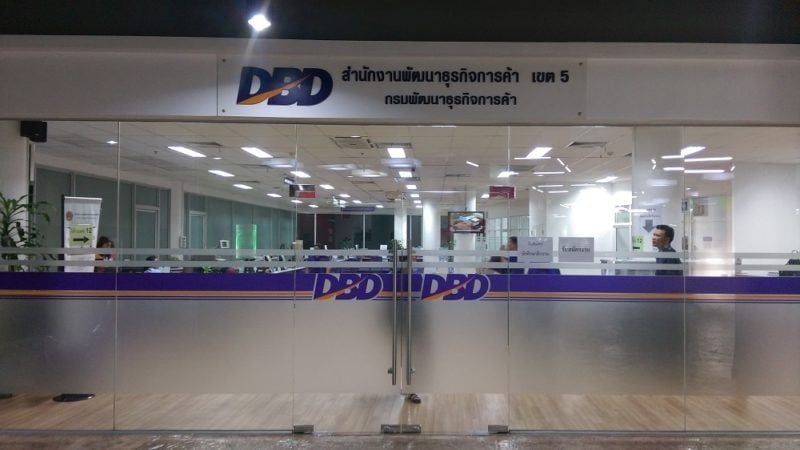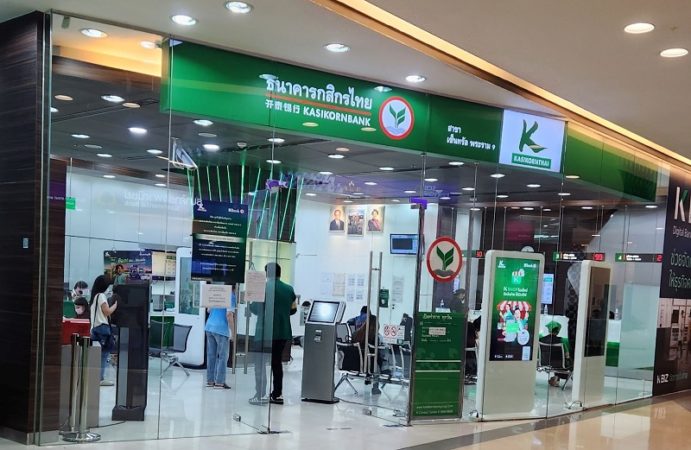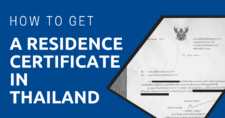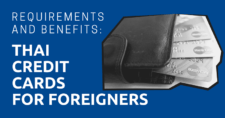
When it comes to registering a company in Thailand, there are many choices and options available to foreigners.
You can go with the common route of having a limited company, or you can have a company promoted by the Thailand Board of Investment and receive many perks related to corporate tax and the ability to hire expats.
This guide shows you which company registration choices you have, how to get business visas and work permits, and all the other odds and ends of running a business in Thailand.
"*" indicates required fields
Disclaimer: This article may include links to products or services offered by ExpatDen’s partners, which give us commissions when you click on them. Although this may influence how they appear in the text, we only recommend solutions that we would use in your situation. Read more in our Advertising Disclosure.
Contents
- Incorporation Options
- Limited Companies vs BOI Promotion
- Requirements
- Registering Companies
- Getting Visas and Work Permit
- Getting Social Security
- Running Your Company
- Can I Register a Company in Thailand Myself?
- How Much Does a Lawyer Cost for Registering a Company in Thailand?
- Do I Need to Learn Thai?
- Now, on to You
We have exclusive business content with insider business tricks that you can’t find anywhere else.
By becoming a subscriber of our Business tier, you can get immediate access to this content:
- Karsten’s List of Personal and Professional Services
- A Step-by-Step Guide to Registering a Company in Thailand on Your Own
- Taxes You Have to Deal with as a Business Owner in Thailand
- Employee Regulations You Must Know as a Business Owner
- Increase Your Chances of Getting Tax Refunds for Your Company
That’s not all. You get a free consultation with a corporate lawyer, a free consultation with an accountant, enjoy ExpatDen ad-free, and get access to over a hundred pieces of exclusive content to make your life in Thailand hassle-free.
Here is the full list of our exclusive content.
To get access to these exclusive business guides and more, become a subscriber.
Incorporation Options
When you look online, you will see many types of incorporation options available. The two most common are setting up a limited company or going with a Board of Investment (BOI) promotion.
For other options, such as establishing a representative office, branch office, registering a company under the US-Thai Treaty, or sole proprietorships, they are becoming less common.
So, in this article, we will mainly focus on how to register a company in Thailand on your own for limited companies and the Board of Investment promotion.
Limited Companies vs BOI Promotion
A limited company is the most popular registration choice for expats who wish to do business in Thailand. Actually, this is the only option available to expats who want to set up a company in Thailand.
This is because, for the Board of Investment promotion, you still need to set up a limited company. While there are many choices available, a limited company might be your only option.

So, it’s always better to aim for getting the BOI promotion right away since it comes with many more benefits than setting up a company without the BOI promotion, for example:
- You can own 100 percent of your company shares.
- Getting visas and work permits for you and your foreign employees is much easier.
- Your company might be exempt from paying corporate taxes for up to eight years.
But there are two main disadvantages to getting the BOI promotion:
- It requires extra steps to set up a company since you need to deal with the Board of Investment. The whole application process of getting approval from the BOI can take one to three months.
- It places more demands on accounting since you have to regularly report your company’s financial status.
In addition, not all companies can get a BOI promotion. The BOI has its own categories to specify which types of companies it can promote, which are subject to change regularly based on what Thailand needs at that time.
Moreover, each category has different requirements. You can find out more in our guide to setting up a BOI promoted company.
Requirements
Let’s examine the key requirements to set up a company in Thailand:
- registered capital
- shareholders
- cost
- company address
- auditor license number
Registered Capital
Generally, the minimum registered capital for your company primarily depends on the amount required by Thailand’s BOI, which varies between industries.
For instance, a software development company needs a registered capital of THB1,500,000, while a co-working space provider requires at least THB10,000,000. If you don’t plan to have your company promoted by the BOI, the minimum registered capital is THB2,000,000.
This is the minimum capital required to hire a foreign employee (like yourself).
While a larger registered capital can boost your company’s credibility, if your company’s registered capital exceeds THB5,000,000, you’ll be subject to higher corporate taxes than companies with lower registered capital.
We’ll delve deeper into this in the Corporate Tax section below.
Shareholders
A company must have at least three shareholders. If the company isn’t promoted by the BOI, foreigners cannot hold more than 49 percent of the company shares.
Following this route requires finding Thai partners to own the remaining 51% of shares.
It’s crucial to note that using a proxy to have a Thai individual hold company shares on your behalf is illegal.
Conversely, if the company is BOI-promoted, foreigners – including family members and partners – can own 100 percent of the shares.
Company Addresses
To establish a company in Thailand, you need a legitimate company address.
This can be secured by leasing a physical office, serviced office, or virtual office. Ensure the selected address aligns with your business needs and is accessible to you, clients, partners, and future employees.

Changing your company address later can be troublesome, requiring communication with various entities like the Department of Business Development, Revenue Department, banks, service providers, partners, and more.
Find out more:
- Virtual Offices in Bangkok: Benefits, Prices, Locations
- The Ultimate Guide to Finding an Office for Rent in Bangkok
- Serviced Offices in Bangkok: Prices, Benefits, and Locations
Auditor License Numbers
Currently, you need to have an auditor license number when setting up a company in Thailand. If you engage an accounting firm or a legal firm to assist in setting up your company, they should be able to provide you with an auditor license number.
If you don’t already have one, you can search online. Numerous auditors can offer you an auditor license number for a fee ranging from THB500 to THB2,000.
Accounting Firms in Thailand
Banchee Legal House

A law firm in Bangkok with a broad range of legal and business services to offer their clients.
Contact Banchee Legal HouseCost of Setting up a Company
You must ensure you have sufficient funds for the government fee and registered capital.
The costs mentioned in this section don’t include the expenses associated with running a company in Thailand; we’ll discuss that later.
Government Fee
Various government fees apply when registering a company in Thailand. An estimated fee for a company with THB 1,500,000 registered capital ranges from 10,000 baht to 15,000 baht.
If your company has a higher registered capital, the government fee will increase accordingly.
Funds
Beyond the government fee, you must also cover the registered capital.
Typically, this involves obtaining a financial certificate from a Thai bank where you hold an account. The balance on this certificate should surpass the value of the shares you intend to own in the company.
The Department of Business Development in Thailand always requests this letter when a foreigner is a shareholder.
Other Fees
Should you opt to employ an accountant or a lawyer to establish a company on your behalf, anticipate paying an additional 20,000 baht to 30,000 baht for a standard limited company.
If it’s a BOI-promoted company, fees can reach between 80,000 baht and 100,000 baht.
Setting Up Your Company
Establishing a company is the most challenging part, where you’ll encounter various legal intricacies.
It’s importate to state that the whole process is mainly in Thai, so it’s helpful to have a reliable Thai partner or hiring a law firm.
Corporate Lawyers in Thailand
Banchee Legal House

A law firm in Bangkok with a broad range of legal and business services to offer their clients.
Contact Banchee Legal HouseFRANK Legal & Tax (Bangkok)

FRANK Legal & Tax is a boutique law firm with locations in Bangkok and Phuket. It specializes in real estate, corporate, and commercial laws.
Contact FRANK Legal & TaxDepartment of Business Development
Regardless of your company’s legal structure, you must establish and register your business with the Department of Business Development (DBD). You’ll need to prepare the documents mandated by the DBD and meet their specifications.
The DBD has offices in Bangkok and other provinces, making it convenient to register a company outside of the city.

You can submit your documents for company registration at any DBD branch, regardless of your company’s location.
However, if you make any modifications to your company’s details, you must do so at the DBD office where you initially registered the company.
Book Your Company Name
The initial step in registering a company in Thailand is reserving your company’s name in both Thai and English, ensuring it isn’t similar to any other company’s name.
Moreover, your company name shouldn’t incorporate names of the royal family, ministries, or any governmental organizations in Thailand.
You can reserve your company name via the Department of Business Development’s website.
Document Requirements
Document preparation is the primary step in registering a company in Thailand.
In essence, the success of your registration hinges on the documents you compile.
A handy tip: engage a Thai individual to assist with document preparation since the entire process, including the forms you’ll complete, is in Thai.
Below is an example of the documents you will need:
- list of shareholders
- shareholder’s financial certificate
- meeting notes
- proof of capital payment
- memorandum of association
- proof of company address
Note: Your landlord might charge you between 2,000 baht and 3,000 baht to provide proof of company address, which may include copies of the house owner’s ID, house registration, map, and lease.
Though the document list might seem daunting, it’s more straightforward than it appears.
You can access and download most of these documents directly from the Department of Business Development website. They also offer guidance on how to complete the forms.
Company Stamp and Logo
If you’re considering having a logo and a stamp for your company, it’s advisable to get them before registering the company.
This is because you’ll need to register your company stamp and establish an authorized signature during the company registration process.
You can still register a company without a stamp, but if you decide you want one later, you’ll have to revisit the Department of Business Development to make the addition.
Obtaining a company stamp in Thailand is straightforward.
There are shops in most department stores that provide this service, or you can order one online.
The process typically takes a day and costs a few hundred baht per stamp.
Registering Companies
When you have all the necessary documents, there are primarily three methods to register a company:
1. Walk-in
You can visit any Department of Business Development in person. They are open on weekdays, except on holidays, from 8:30 am to 4:30 pm.
Once there, inform the information counter that you’re there to register a company. They will preliminarily review your documents.
If everything is in order, you’ll be given a queue number to meet with a DBD staff member for a more detailed document check. If all is correct, you’ll receive an invoice and can make the payment at a nearby cashier counter.
Typically, you can receive the company registration certificate the same day.
If there are issues with your documents, you may need to locate a nearby printing shop to make corrections. Be aware that most of the process will be conducted in Thai.
2. Appoint a Representative
Many expats opt to designate a Thai representative to handle the registration on their behalf.
This representative can be an employee, accountant, lawyer, or even a motorcycle taxi driver.
To use this method, you’ll need to prepare a power of attorney and provide a signed copy of your passport to your representative.
If you’re working with an accounting or law firm, they’ll typically handle the registration this way on your behalf.
3. Online
Registering online is becoming increasingly popular since you can do it from the comfort of your home.
Any required document corrections can be made instantly, make it very convenient.
To register your company online, first, set up an account on the DBD E-Registration website. Once that’s complete, upload all necessary documents and register the company there.
However, note that the entire online process is in Thai.
After all your documents are approved, you can pay the fee online using mobile banking. The business registration certificate should be sent to you within a week.
It’s an essential document that you’ll frequently need when interacting with other organizations as a company.
Getting Visas and Work Permit
AFTER you successfully register your company in Thailand, you can get a business visa and a work permit.
During the company registration process, you should be on a different visa type, such as a tourist visa or an education visa.
It’s important to mention again that unless your company has secured a promotion from the Board of Investment, you can only hire foreign employees if the company meets BOTH of the following conditions:
- A ratio of four Thai employees for every foreign employee.
- A paid capital of 2,000,000 baht for every foreign employee.
For obtaining a business visa, or non-b visa, you can approach any Thai Embassy outside Thailand. Malaysia, Cambodia, Laos, and Singapore are popular countries for this purpose.
Initially, a non-b visa grants a 90-day stay in Thailand. After arriving in Thailand with this visa, you can then apply for a work permit.
Once the work permit is secured, you can extend the non-b visa to one or two years.
For a comprehensive guide on requirements, documentation, and procedures, read the following articles:
- An Expat’s Guide to Business and Work Visas in Thailand
- Want a Work Permit in Thailand? Here’s How to Do It
On a side note, you shouldn’t register a company for getting a visa.
While it’s possible, the expense and hassle you need to deal with isn’t worth it. It’s better to look for alternatives such as the Privilege Visa or the Smart Visa which are cheaper than setting up and running a company for visa purposes.
Getting Social Security
The process of registering a company in Thailand doesn’t end at the Department of Business Development.
You’ll also need to establish a social security account for your company. The good news is that your social security account is now automatically approved after successfully registering a company with the DBD.
However, every time you hire someone, including yourself, you must register them with your local Social Security office within 30 days.
Conversely, when someone departs from the company, you need to notify your local Social Security office by the 15th of the following month.
Payments to the Social Security office for all employees are due before the 15th of each month and can be made online on the Social Security website.
As an employer, you’re required to deduct social security from your employees’ salaries and match the amount, contributing both portions to the social security office.
It amounts to 5% of an employee’s salary, capped at 750 baht per month.
For instance, if an employee earns 15,000 baht, the total social security contribution is 1,500 baht (750 baht from the employee and 750 baht from the company).
Related article: The Comprehensive Guide to Social Security in Thailand for Foreigners.
VAT Registration
Once your company exceeds THB1.8 million in annual revenue, you’ll need to obtain a VAT license. If you anticipate your company’s revenue surpassing 1.8 million baht, it’s advisable to register right after establishing your company.

The VAT registration should be completed at the Revenue Department in your vicinity within 30 days from the day your revenue reaches that threshold.
Related article: How to Get a VAT Registration Certificate in Thailand as a Business Owner
Getting Other Licenses
The licenses your company needs will depend on its type of business. For instance, if you’re opening a restaurant, selling liquor, or playing music, you’ll require both an alcohol license and a music license.
Operating a shipping company mandates an import and export license. If you’re importing food and drugs for sale in Thailand, you’ll need a license from the FDA.
Make sure you talk to your lawyer to get all the licenses you need and avoid any fines or problems later on.
Hiring an accounting firm can also be a good move because they can make sure you have all the right forms filled out and they can even apply for you.
Such firms may request photocopies of your bank statement and a map pinpointing your company’s location. Once you’ve submitted the necessary documentation, you’ll need to wait for approval.
The waiting period can differ based on the province, region, and type of license, so it’s essential to research this since Thai bureaucracy frequently updates processing times.
Some licenses, like those for liquor and music, must be renewed annually, with fees ranging from 600 baht to 2,000 baht.
Running Your Company
After you have set up your company, there are other important tasks you need to address as a business owner:
Finding Office Spaces
When it comes to office spaces, you have three choices:
- serviced offices
- traditional offices
- virtual offices
A serviced office is the most expensive option. You can expect to pay 20,000 baht a month for a small room. However, it’s also the most convenient option since it comes with everything you need for running a business, including furniture, phone, and internet.
Many serviced office providers also frequently include cleaning services and coffee in their packages. Serviced offices are also flexible, with contracts that can be as short as a week.
Office Rental Services in Thailand
ATA Services

ATA Services is a one-stop service solutions company providing adapted solutions for your business in Thailand.
Contact ATA ServicesOn the other hand, traditional offices are more complicated and expensive to set up. You’ll need to invest in furniture, establish phone and internet accounts, and hire a maid and administrator to manage cleaning and other office tasks.
But in the long run, it will be more affordable than serviced offices.
If your company doesn’t require a physical space, consider renting a virtual office. This option allows you to use the virtual office as your company’s address in Thailand.
The virtual office provider will handle mail and other related services on your behalf.
Find out more:
- Serviced Offices in Bangkok: Prices, Benefits, and Locations
- The Ultimate Guide to Finding an Office for Rent in Bangkok
- Virtual Offices in Bangkok: Benefits, Prices, Locations
Buying Furniture and Equipment
If you’re renting a serviced office, you’ll likely only need a few office supplies, costing a few thousand baht.
However, if you choose a traditional office, you’ll need to buy furniture, which averages around THB12,000 per workstation.
You can get everything you need for your office from OfficeMate. For furniture, take a look at IKEA.
Also check out Makro, a wholesale store where you can stock up on supplies.
If you don’t see what you’re looking for, ask to see their catalog. They have more low-priced goods in their showrooms.
Opening Business Bank Accounts
After registering your company and receiving your registration, you’re eligible to open a business bank account.
Common banks for businesses in Thailand include Kasikorn Bank, Bangkok Bank, and SCB. The differences between these banks are minimal, so choose the one that best fits your convenience.
However, be aware that the bank branch where you open your account will be your primary point of contact for any account-related changes, such as updating your company address or obtaining a company credit card.
To open a business bank account, you might need to provide meeting notes in Thai and a copy of your company registration issued within the past six months.

Each bank’s website should list the necessary documents. It’s worth noting that document requirements can vary between bank branches.
Don’t be surprised if a bank officer requests additional documents not listed on their site.
Additionally, having a referral can be beneficial, as banks might be reluctant to open accounts for foreign business owners.
After opening your account, ask the bank to enable online banking – it will likely become your primary method for managing your finances.
Some banks, like Bangkok Bank, offer a security token machine for accessing online banking, while others, such as Kasikorn Bank and Krung Thai Bank, use OTP.
Corporate Credit Card
Obtaining a company credit card is challenging. Most banks only offer credit once you have been operating for a few years.
Some people manage to obtain company credit cards earlier, but they are typically unsecured credit cards, meaning you must deposit the entire credit amount in the bank as collateral.
If you can’t secure a credit card for your company, consider applying for a personal credit card and using it for company expenses.
Paying Taxes
Another major operating responsibility is filing taxes.
There are primarily two types of taxes for your company:
- Corporate tax
- VAT
The corporate tax rate is fixed at 20%.
If your company is a small company with a net profit ranging from 300,000 baht to 3,000,000 baht, the corporate tax rate will be 15% instead.
VAT is calculated on sales of goods and services.
The current VAT rate is 7 percent. It’s only calculated on the difference between the price you buy the goods for and the price you sell the goods for.
Some types of company service income are subject to withholding tax or WHT.
The company has to give withholding tax certificates for all transactions that fall under this category.
You must pay WHT to the Revenue Department every month. WHT rates depend on income types as seen from the Revenue Department website, Subject 6.
You can report WHT by paper before the seventh day of each month or by e-filing before the 15th day of each month.
Depending on your business, there might be other types of taxes. It’s best to consult with an accountant. In addition, an accountant can handle these tax filings on your behalf.
Find out more
- Accounting: Taxes You Have to Deal with as a Business Owner in Thailand
- Thailand Business: Filing a P.P. 30 Value Added Tax (VAT) Return
- Get the Right Company for Accounting Service in Bangkok, Thailand
Finding Employees
When hiring staff, you have several options.
Recruitment agencies can assist you in finding, screening, and interviewing suitable candidates tailored to your organization’s needs. Typically, these agencies charge the equivalent of a three-month salary for the position they’re helping to fill.
Recruitment agencies are especially effective for managerial positions and above due to the significant commissions they earn.
If a candidate doesn’t pass probation, many agencies will source a replacement without additional fees.

You can check recruitment agencies from this article.
Alternatively, you can post job listings on websites like Jobdb, Jobthai, and Jobtopgun.
While these platforms are effective, a drawback is the potential influx of applications, sometimes receiving over a hundred in a day.
LinkedIn is particularly useful for recruiting foreign workers or managerial-level employees.
Another method is to network regularly. For other roles, consider posting a “Staff Wanted” sign, advertising in local Facebook groups, or obtaining referrals from locals.
Employee Benefits
Beyond their salary, you can offer employees perks such as meals, drinks, and snacks. Group health insurance, while optional, can also be provided.
Consider granting your staff a THB2,000 bonus during the Songkran festival or Thai New Year and providing housing allowances. These additional benefits, not mandated by Thai law, can incentivize and retain employees.
nsuring employees are compensated fairly is essential to prevent turnover and attract potential new hires.
Working Hours, Holidays, and Leaves
Standard working hours in Thailand are 8 hours on weekdays, typically from 8:30 AM to 4:30 PM, with an hour for lunch.
Following the impact of COVID-19, many companies adopted more flexible hours, allowing employees to start as late as 11 AM and conclude at 7 PM.
This flexibility should be adapted to what’s best for your company.
Employees are entitled to a minimum of 13 holidays annually. A straightforward approach is to follow the bank holiday calendar, usually released between November and December.
Employees are granted 30 days of sick leave each year. It’s up to employers to set the parameters for this leave. For instance, you might require a medical certificate if an employee takes consecutive sick days.
Annual leave ranges from 5 to 30 days. Here’s what I use for my business based on tenure.
- 1st year: 5 days
- 2nd year: 10 days
- 3rd year: 15 days
- 4th year and beyond: 20 days
Salary
A significant advantage of running a business in Thailand is the relatively low cost of labor compared to Western countries. Expect to pay between 18,000 and 20,000 baht for a recent graduate.
On average, salaries for Thai employees range from 30,000 to 40,000 baht monthly, with higher figures for managerial positions.
Since every business is unique, a practical approach to determining what you should pay your Thai employee is to explore job sites and see what other companies are offering for the position you’re looking to fill.
When hiring a foreign employee, the starting salary tends to be higher than that of Thai employees. Moreover, Thailand has set minimum salaries based on nationality.
Here’s a breakdown of those categories by nationality.
| Minimum Monthly Wage | Worker’s Country of Origin |
| THB60,000 | USA, Canada, and Japan |
| THB50,000 | European countries, UK, and Australia |
| THB45,000 | Taiwan, Hong Kong, South Korea, and Singapore |
| THB35,000 | Eastern European countries, Asian countries, Central American countries, Mexico, South American countries, Turkey, Russia, and South Africa |
| THB25,000 | African countries, Cambodia, Myanmar, Vietnam, and Laos |
Can I Register a Company in Thailand Myself?
Unless you can read and write Thai fluently, registering a company in Thailand yourself is very challenging.
While the process itself is straightforward, the language barrier poses a significant obstacle. As mentioned earlier, most steps, including the forms you need to complete, are primarily in Thai.
Thus, you have two options:
- Get the help of a Thai partner or friend to assist with document preparation or
- hire a lawyer to handle it
How Much Does a Lawyer Cost for Registering a Company in Thailand?
Typically, a lawyer charges between 20,000 baht and 30,000 baht to register a company in Thailand. However, the fee can vary based on the complexity of your business.
This does not include government fees. If you want your company to be endorsed by the Board of Investment, legal fees will be higher, potentially exceeding 100,000 baht.
Do I Need to Learn Thai?
While it’s not mandatory, learning Thai can be incredibly beneficial. It facilitates management of Thai employees and fosters strong relationships with them.
Additionally, it leaves a positive impression on your Thai partners and service providers. Engaging with other business owners can also offer insights or knowledge about the local market in which you operate.
When learning Thai for business, it’s advantageous to find a private Thai tutor who can teach you the specific vocabulary relevant to your industry.
This approach is much quicker than following a standard Thai course.
Now, on to You
Given all the steps outlined above, setting up a company in Thailand might seem daunting.
In reality, it has become easier over the years to establish a company here.
However, you should think carefully before launching a company in Thailand. It’s not for everyone, and the registration process is just the tip of the iceberg.
On the other hand, if you have a solid business plan and are eager to embark on your entrepreneurial journey in Thailand, go for it.
If you have any questions regarding to setting up a company below, please feel free to leave your comment below.










As far as I know it IS possible to change the visa type when being in Thailand. No need to leave the country (which would be a big hassle in current Covid times. :-((( ).
Just ask immigration police.
I am expat with permanent residence (PR) in Thailand. I want to register a company to import and sell equipments. Pl. suggest type of company I should register.
I’d got with a limited liability company. The permanent residence doesn’t really change things when it comes to company ownership. However, best check with a lawyer to be on the safe side. See this page with some additional information on that: https://expatden.com/thailand/thailand-lawyers/
Another option would be if he applies for Thai citizenship, right?
I think the step from PR to Thai national isn’t that big, especially if he is married to a Thai national.
some spelling errors unfortunately
in big bold letters at the beginning it should say that every single document from the Thai authorities is in Thai language and that you will be signing 100’s of docs that you dont know what is in them
You need to fly blind and trust at 200% – as you will never really own the company as Thais have 51% (Beside AMITY and some BOI)
My golden rule is that a new business must be able to open for the first 12 months making no money and be able to afford all the overheads
As it would take 12 months for your business to get known
Especially when starting out, language is definitely an issues – as you said, all official documents in Thai. Working with a reputable law firm definitely can help in putting minds at ease. When I first started out in Thailand I went with a ‘cheaper’ option and it all ended up working out well without anything bad ever coming out of that. However, with the benefit of hindsight, I’d say spend the additional THB 50,000 to THB 80,000 to have someone involved from the very start who not only is capable of doing the work and understands the law, but can also is on the same page with you when it comes to ethics and acceptable practices. It’s a small price compared to the potential issues it can otherwise cause.
Americans can have 100% ownership, it’s for us mere mortals that the 49% rule applies
Hi, Thanks for such a great info….
i have gained so much knowledge from your article above…
i am planning to start a EXPORT Business from Thailand..as i would b buying items locally for export there are export companies who can do that on my behalf but in that case my customers will see the Consignee details on Bill of Lading and they will directly contact them for future business thinking to reduce my cut….for this reason i need to make a company in Thailand and than process all exports from my own company to my foreign customers in African & Asian continent. Any help u can do with that? or any guidance u can provide related to exports from Thailand?
i will be grateful for your email reply.
Regards,
An excellent e-mail and content.